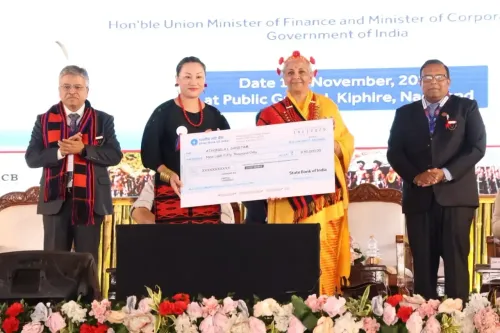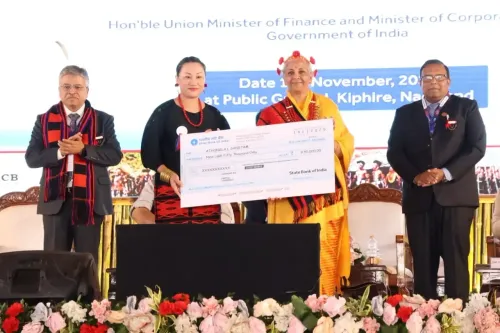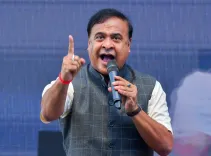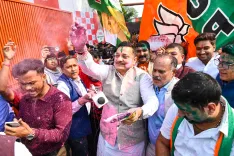Is India Now the 6th Largest Patent Filer in the World?
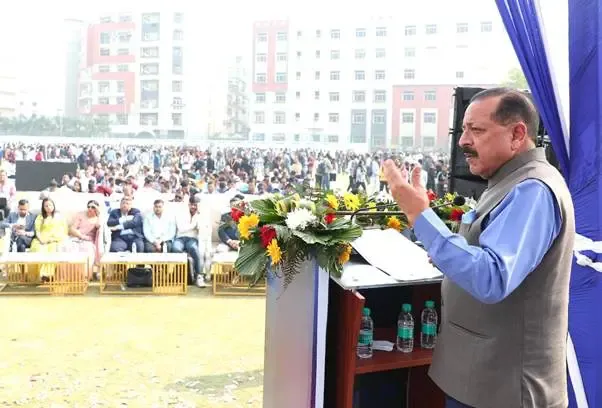
Synopsis
Key Takeaways
- India is now the 6th largest patent filer globally.
- 64,000 patents filed, with over 55 percent from resident innovators.
- Significant policy reforms have empowered local innovators.
- India's rank improved from 81 to 38 in the Global Innovation Index.
- Government initiatives support entrepreneurship and skill development.
New Delhi, Nov 14 (NationPress) India has officially secured its position as the 6th largest patent filer globally, boasting over 64,000 patents. Notably, more than 55 percent of these patents are attributed to resident Indian innovators, marking a significant shift from the previous reliance on foreign institutions for research, mentorship, and project execution, stated Union Minister Jitendra Singh on Friday.
Speaking at the Annual Tech Fest INNOTECH’25 held at KIET Deemed University, the Union Minister of State (Independent Charge) for Science and Technology highlighted that this impressive growth in domestic patent applications underscores India’s evolving innovation ecosystem and its increasing competitiveness on a global scale.
Singh pointed out that this transition signifies the rise of a “most compatible milieu at home”, facilitated by continuous policy reforms, research incentives, and a conducive environment shaped under the guidance of Prime Minister Narendra Modi.
He noted that the earlier deficiencies in policy support and institutional backing have been effectively addressed over the past decade, empowering young Indian innovators to engage in pioneering research and secure high-value patents domestically.
Emphasizing India's transformation into a leading scientific nation, the Minister remarked that the country has advanced from Rank 81 to Rank 38 in the Global Innovation Index, a remarkable achievement fueled by consistency, significant milestones, and a concentrated national emphasis on science and technology.
He cited notable achievements such as Chandrayaan-3, the world’s first DNA vaccine developed in India, indigenous antibiotics, and successful gene therapy trials, highlighting these as evidence of India’s expanding scientific prowess and global leadership.
The Union Minister stressed that events like INNOTECH’25 exemplify the broader national framework prioritizing private sector involvement, deep-tech entrepreneurship, and cross-industry collaboration.
He mentioned that expos and conferences supported by the Department of Science and Technology (DST) play a crucial role in uniting industry leaders, researchers, venture capitalists, and emerging entrepreneurs on one platform, facilitating the swift transformation of ideas into commercially successful ventures.
With over 20 venture capitalists participating in the event, the Minister reiterated that India’s forthcoming technological advancements will be driven by robust public-private partnerships.
Singh also highlighted the importance of overcoming outdated perceptions regarding careers and livelihoods.
He asserted that in a swiftly evolving India, entrepreneurship, start-ups, skill development, and applied sciences present far more opportunities compared to traditional reliance on government jobs.
By citing success stories backed by government initiatives such as Mudra, PM-Svanidhi, and PM-Vishwakarma, Singh emphasized that the government has made funding, mentorship, and skill development accessible, even for individuals without advanced degrees.
He added that the National Education Policy (NEP 2020) has reformed the academic landscape by permitting students to switch subjects, engage in multidisciplinary studies, and follow their passions.
Various DST initiatives, including INSPIRE fellowships, MANAK awards, dedicated programs for women and tribal scientists, and the Vaibhav initiative connecting Indian researchers abroad with local institutions, were highlighted as pivotal for cultivating a globally competitive scientific workforce.


